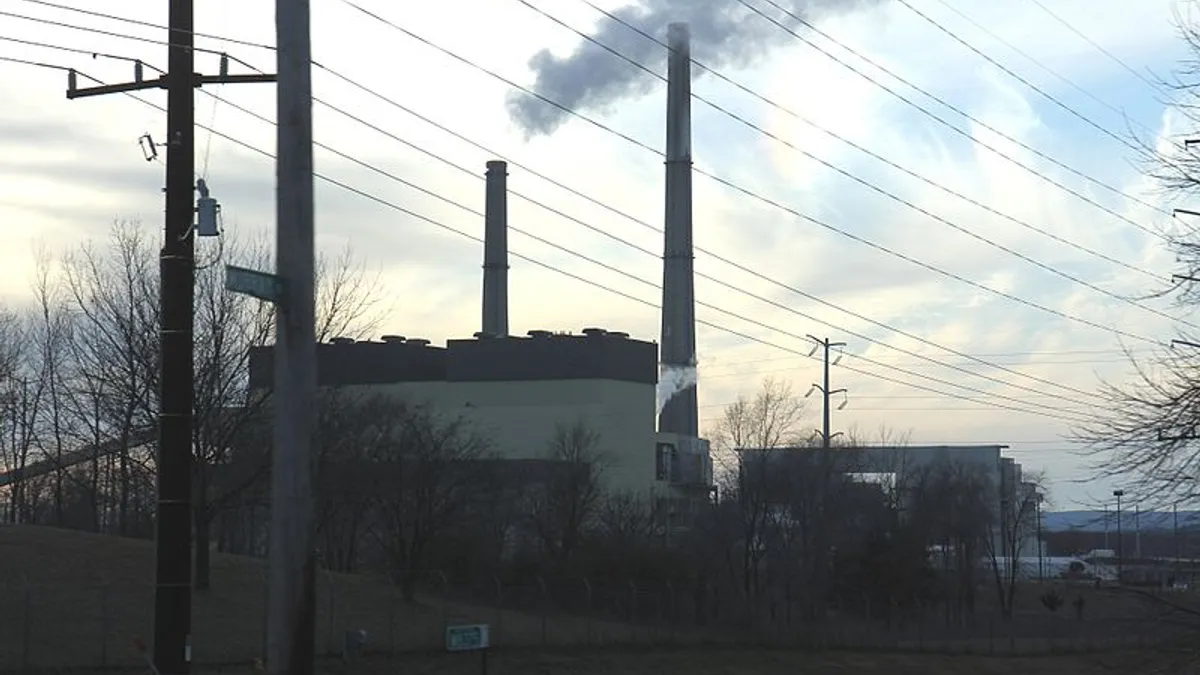Dive Brief:
- Policymakers and organizations with climate action and social equity goals must consider a multi-faceted approach to ensuring former fossil fuel workers are treated fairly, according to a new report by Resources for the Future and the Environmental Defense Fund (EDF).
- U.S. investment in rural communities, where the majority of energy production takes place, has steadily declined over the past 30 years, Heidi Binko, executive director and co-founder of the Just Transition Fund, said during a Wednesday panel discussion based on the report's findings. This has made many rural communities dependent on fossil fuel income, and economic recovery cannot happen unless physical and social infrastructure in these communities are upgraded, Binko said.
- At the same time, Julia Haggerty, an associate professor of resource geography, rural geography and resilience at Montana State University, said rural communities are distrustful of the clean energy transition and of government intervention. Their skepticism, she said, may stem from the country's poor track record of managing the social impacts of past economic transitions.
Dive Insight:
"We have never actually done a transition that has been fair and equitable in this country, probably ever. We need to do a lot of new things to turn that around," Jason Walsh, executive director of BlueGreen Alliance, a nonprofit focused on creating job equity in the clean energy sector, told the audience of a Wednesday panel hosted by Resources for the Future and the EDF.
But what, exactly, should be done, remains unclear for that very reason, Haggerty said: the U.S. has never done this successfully before, so it's not clear which strategies work. What is clear, according to a pair of reports on equitable transition policy by Resources for the Future and EDF, is that no single solution can solve what is a complex, multi-faceted problem years in the making.
What is also clear, according to Walsh, is that the U.S. must turn over a new leaf and find ways to provide energy communities with viable economic alternatives, rather than leaving them to fend for themselves as in the past.
"A lot of workers and communities are hurting right now," he said. "They need help, and we will be remiss if we lose this opportunity to deliver on that."
Federal investment in rural communities has steadily declined over the last 30 years, Binko said, and as a result, many of these communities are ill equipped to begin diversifying their economies. Broadband, for example, cannot be talked about enough, she said.
"It's interesting to me the fundamental barrier that broadband represents," Binko said. "Businesses do not go where there's no connectivity. They can't telework. Social indicators slide when you don't have [broadband]."
Binko noted that access to broadband is also necessary for the adoption of smart grid technologies, which she said are essential to achieving 100% clean energy.
Wesley Look, senior research associate for Resources for the Future, said fossil fuel communities that find themselves caught up in the transition likely need a suite of relief efforts that include upgraded and expanded infrastructure, environmental remediation, workforce developments and social safety nets, including potentially income support such as unemployment insurance or even direct cash payments to low-income households. These policies need to be tailored to individual situations, he said, but also need to be centralized to ensure coordinated delivery and easy of access.
Panelists expressed uncertainty about how much such a comprehensive package would cost, but agreed that the number would likely exceed the $38 billion identified last week in a report by the White House Interagency Working Group on Coal and Power Plant Communities and Economic Revitalization. The likely price tag is so large, Binko said, that it will likely require some form of investment from the private sector as well.
"Given the scope and scale, we need to think critically about how we can engage private sector partners," she said, "particularly those who have made commitments to 100% renewable energy and those with commitments to racial justice and equity."














